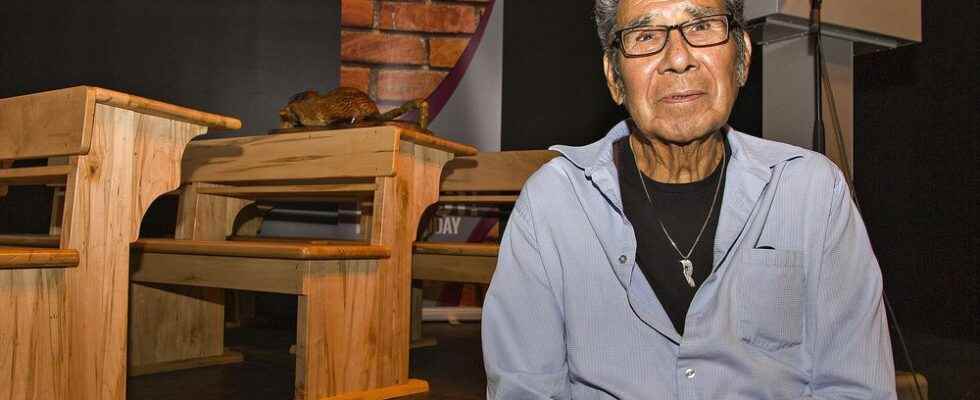Like many residential school survivors across the country, Geronimo Henry has one question in the wake of Pope Francis’ visit to Canada — what comes next?
“He didn’t lay out any future plans other than asking for forgiveness,” Henry said.
Henry spent 11 years at the Mohawk Institute Residential School in Brantford, which was run by the Anglican Church. As a result, the Pope’s apology “had nothing to do with me, actually,” Henry said.
But he expected survivors of Catholic-run residential schools “would get something” from hearing the pontiff’s remarks.
To Henry, the Pope’s speech in Alberta on Monday fell short because he did not implicate the institution of the church in the physical, emotional and sexual abuse of Indigenous children, instead apologizing for the actions of “many members of the church and of religious communities .”
“He didn’t say that the Catholic Church was responsible for all the atrocities that happened to those little kids. He didn’t say that so far. He just (apologized) for some evil people doing the abuse to these children,” Henry said.
“(The schools) were run by the Catholic Church, and the Pope, he’s the head man. So if something goes wrong in your ship, you’re supposed to step up and take responsibility.”
Six Nations Elected Chief Mark Hill could not be reached for comment. In a statement to the Two Row Times, Hill said he was “pleased” the Pope visited Canada but wanted to see the Catholic and Anglican churches, along with the federal government, turn over their records to investigators searching the grounds of the former residential schools for human remains.
“It is my hope that his apology is only the beginning of the Catholic Church’s efforts to sluggish for their role in the residential school system,” Hill said. “Survivors deserve justice for the atrocities they endured at the hands of these organizations.”
A spokesperson for the Haudenosaunee Confederacy Chiefs Council — the traditional leadership on Six Nations — said the council had representatives in Quebec City, where the Pope landed on Wednesday to continue his Canadian tour, and the Confederacy would wait to hear from them before making any public comments.
The Archbishop of Canterbury, head of the Anglican Church, visited Canada in May and apologized for his church’s role in the residential school system, while promising all records the church held would be made public.
Henry met the archbishop, Justin Welby, at the Anglican Church’s headquarters in Toronto, and told Welby of his experience in the Mohawk Institute.
“I told him my story and he shook my hand and said he was going to do his best to rectify some of the wrongs that the Anglicans did to the Native people,” Henry said.
Henry, a member of the survivors’ secretariat leading the ground search at the Mohawk Institute, said ultimately no words of apology can undo the wrongs he and many others endured there.
“These days, just saying ‘I’m sorry’ or ‘I apologize,’ that don’t cut it in my world,” he said.
“That (residential school) ruined my whole life. What’s that worth?”
JP Antonacci is a Local Journalism Initiative Reporter based at the Hamilton Spectator. The initiative is funded by the government of Canada
